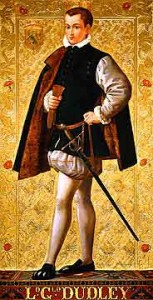 Today’s 60-second history video is on Lord Guildford Dudley, consort of Lady Jane Grey, or Queen Jane.
Today’s 60-second history video is on Lord Guildford Dudley, consort of Lady Jane Grey, or Queen Jane.
As I’ve explained before, the idea of this 60-second history series is to give information about Tudor history in easy-to-digest 60-second chunks. Die-hard Tudor history fans don’t, of course, need these videos, but I hope they act as introductions to newbies or students.
My first seven videos were on the Tudor dynasty and Tudor monarchs, and then I moved on to queen consorts, covering Elizabeth of York, Catherine of Aragon, Anne Boleyn, Jane Seymour, Anne of Cleves, Catherine Howard and Catherine Parr. I’ve now moved on to king consorts.
You can catch this series of videos via 60 Second History playlist of the Anne Boleyn Files YouTube channel.
Next, I’ll be covering Philip of Spain before moving on to prominent Tudor people and Tudor history topics, all in 60 seconds!
Obviously 60 seconds doesn’t give you all the details of Guildford, the events of 1553 and his execution in 1554, so here are some links for further reading:
- Gillyflowers for Lord Guildford Dudley
- Remembering Lady Jane Grey and Guildford Dudley – 12 February 1554
- 25 May 1553 – Lady Jane Grey gets married
- The Trial of Lady Jane Grey – 13 November 1553
- 12 February 1554 – The Executions of Lady Jane Grey and Lord Guildford Dudley
- The Executions of Lady Jane Grey and Lord Guildford Dudley: A Primary Source Account
- “Loving of my Husband”: Jane and Guildford Dudley
- 10 July 1553 – Lady Jane Grey Proclaimed Queen
- 19 July 1553 – Mary I proclaimed queen